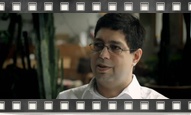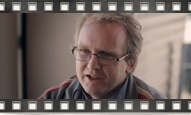2004: Bleating bloggers begin
2004 was not the most exciting year online in New Zealand, but it was the quiet achiever of years; the one in which the initial Internet hype died down and we got on, a little more quietly, with actually doing stuff online. Like our errands.
Track of the Year 2004

The Chills - Heavenly Pop Hit
“Heavenly Pop Hit” represents the high tide mark for The Chills. Number two on the New Zealand singles chart while the parent album Soft Bomb was number one. The song that almost broke the band internationally and the ultimate soaring expression of Martin Phillipps’ personalised take on pop song writing craft. Innocent, exuberant and undeniably infectious. - Roger Shepherd
[ Watch Video ]
Track of the Year by Records
Wireless Internet frees us from the cable
2004 was the year that Wi-Fi, or wireless networking, moved from the domain of the deeply geeky into one where the average household could free itself from the ‘constraints of the cord’. This meant that Kiwis no longer had to go into the spare room to access the Internet or take turns. Being connected was now much less of a chore and could be more integrated into our lives.
Xtra had marketed dial-up in the ‘90s with campaigns targeted at the ‘mainstream’ and did so again by launching a Wi-Fi kit for the home saying, “Wi-Fi is no longer exclusive to just the techies and whiz kids, but available to any Internet user wanting increased mobility and flexibility”.
Little tasks previously added to our to-do list for doing during lunch breaks, could now be done from our sofa or at our desk. Unless you were too busy reading blogs.
Blogs become a daily read
The mid-2000s saw the rise of a number of blogs that have become important daily reads for many Kiwis. Whereas the topic for most blogs had previously been either extremely geeky affairs or intensely personal ones, in 2004 bloggers started to talk about mainstream topics such as business and politics.
Some local blogs would go on to be known worldwide, others would grow communities around them that put the Social Media-scare up some of our largest companies.
Richard MacManus founded ReadWriteWeb as a place for his own opinions on Internet technology and business in 2003. Within two years it would grow with the second Web bubble to become one of the most important and influential blogs on the subjects in the world. It went from one man’s occasional opinion to a suite of blogs, staff writers (mostly American-based) posting 30-40 items a day and an audience the size of New Zealand itself.
Similarly, Mauricio Freitas started Geekzone as a personal blog – tacking a community area on the side as comments around his posts grew. Over the next few years, it would turn into the place for locals to discuss telecommunication technologies such as Internet connections and mobile phones. Visitors would flock to it for help with devices or share their often uncensored opinions on products and services from major providers such as Telecom and Vodafone.
As an outlet for complaints and strong opinions, Geekzone became a major draw for punters keen to watch verbal tussling – and a point of concern for large companies worried about what techie tastemakers were saying and hearing about them. In some cases, it would be a place for insiders to leak information from within these companies – leading to some workplace dismissals in its early years before people learnt where the line was.
Outside the tech arena, Public Address was founded in 2002 by Russell Brown as a channel for his ‘Hard News’ musings that had graced Auckland’s radio waves for a decade. This switch, for convenience and because the audience was migrating online, would grow the site into one of a group of prolific left-leaning bloggers and one of New Zealand’s most conversational communities.
It found its blogging nemesis in David Farrar’s right-leaning Kiwiblog launched in 2003. The National Business review would eventually say that, “Any realistic ‘power list’ produced in this country would include either Farrar or his fellow blogger and opinion leader Russell Brown”.
This heralded the arrival of ‘citizen journalism’ – acknowledging the power of non-professional commentators – that would see both of our major newspapers allowing ‘bloggers’ into their hallowed (digital) pages within a few years as more Kiwis turned to less official and traditional channels for news, opinion and analysis.
Of course radio was not yet dead. Despite the likes of Brown moving their opinions online, many stations were now streaming over the Internet to expand their audience nationally or internationally. Or using the Internet as a cheaper back channel to enable them to broadcast live from more places.
Phoenix rises from the (browsing) ashes
First dubbed Phoenix because it rose from the ashes of the defunct Netscape browser, it was then briefly known as Firebird before finally settling on the name we know today – Firefox. The first real competitor to Microsoft’s dominant Internet Explorer in years, it would become particularly popular in New Zealand.
As would ‘The Facebook’, that also launched in 2004 – although it would be two years before Kiwis were allowed to join what started as a private social network for those in USA’s elite educational institutes. It would become a Kiwi addiction by 2009.
All those little things add up
In 2004, Trade Me announced its 10 millionth auction, sealing our addiction to buying and selling online. There was very little we wouldn’t trade online – even the largest goods, with Trade Me’s new car category selling 200 vehicles a day after only a few months of operation.
It was all the ‘little things’ we could do online that really started to add to our time spent on the Internet in 2004 – from booking our driving test with LTSA’s new service, ordering DVDs through Fatso’s online rental, placing adverts in Fairfax’s range of newspapers or booking flights online with real-time chat with support staff on Freedom Air’s new site.
And if we did have to leave the house to complete any errands, we could at least check out MetService’s new and award-winning website for the weather forecast.
Insecurities are settled

The number of Kiwis purchasing goods online
Nielsen NetRatings says that 22.6% of New Zealanders have used the Internet for research and 19% have purchased something online in the past year. It describes local auction site Trade Me as ‘phenomenal’ in terms of the traffic it attracts.
Doing errands online wasn’t always convenient of course. A spokesperson for BNZ bank said, in the wake of some high-profile online banking scares and scams, “You wouldn’t go to the beach without appropriate suntan lotion. Nor should you go on the Internet without up-to-date Internet safety measures”. But it generally reassured Kiwis that the Internet was as safe as any other banking channel.
ASB stepped up to ensure this was true with the merger of our addiction for texting and the Internet by launching ‘Netcode’ that allowed us to doubly secure our banking transactions by entering a pin sent via SMS before confirming a transaction.
Digital divide acknowledged
Though not everyone was doing chores online in 2004 - plenty of people were still not even online. A report published by Statistics New Zealand highlighted the issue of the ‘Digital Divide’ – simply put, the proportion of households connected to the Internet appeared to rise with income and education level. Many simply couldn't afford access.
The other major influence appeared to be having two or more nagging children in the house. That nagging would get louder over the next few years as our youth got addicted to social networking sites like MySpace and Bebo.
What were your
Kiwi Websites of the Year?

bizgirl [b.2003]
Purportedly the online journal of a local female librarian. Bet out both Public Address and Kiwiblog in the NetGuide Best Blog Award. Until the award ceremony it wasn't known that the blog was actually a fictional account by one creative guy. [ View Site ]
Tomorrow: A pregnant woman's auction on Trade Me brings cries of the second coming.
All
Anecdote
Event





